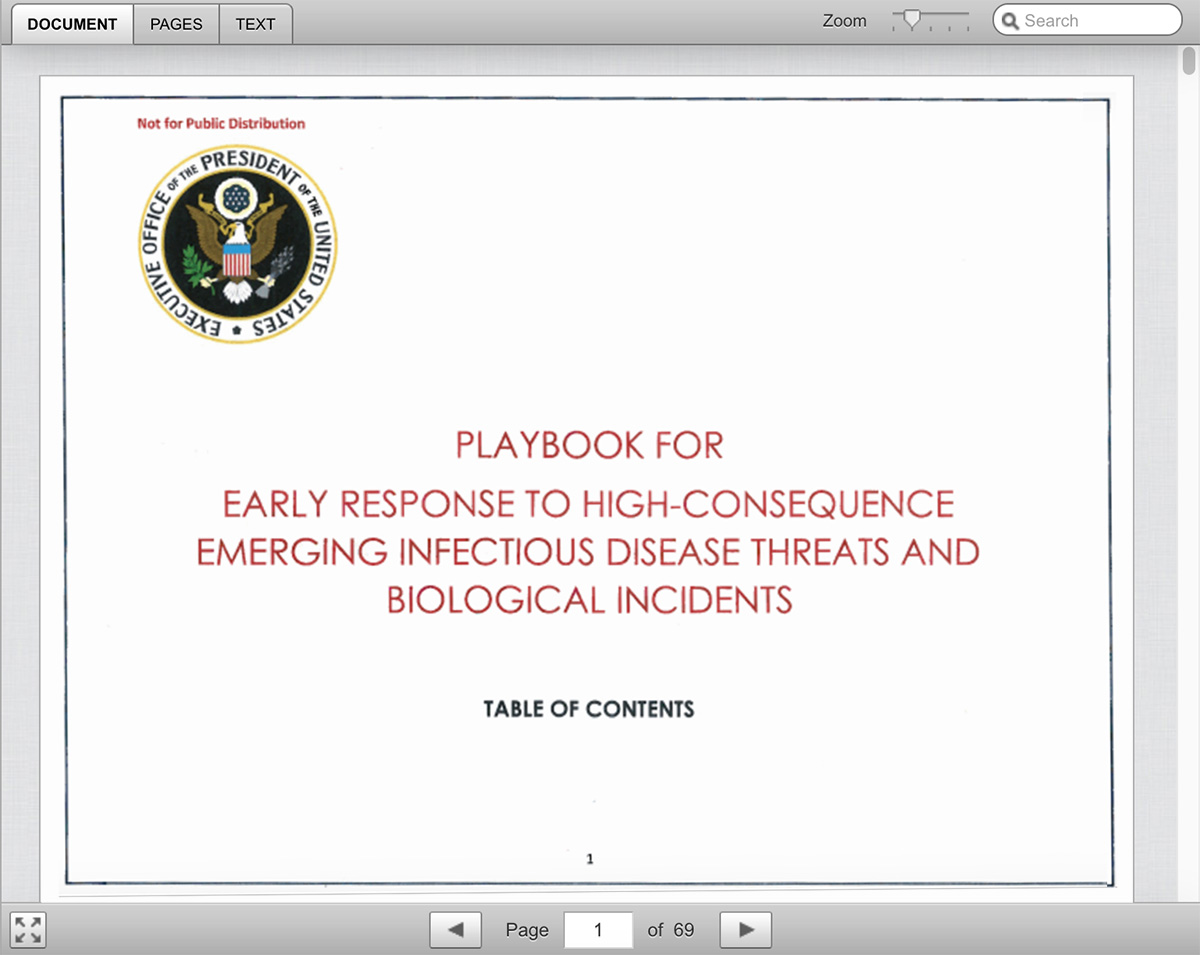The potential strain on our health care system has been widely discussed as the coronavirus COVID-19 outbreak continues. That is why It is important we understand how we got to this point, especially as the U.S. takes the world lead in diagnosed cases of the disease.
Recent reporting has revealed how badly the Trump administration responded to the coronavirus epidemic, effectively acting against the interests of the American people. Most notably, the administration failed to follow a National Security Council playbook full of tactics and key policy guidance for responding to pandemics, which the outgoing Obama administration had prepared in 2016 and briefed the Trump administration on in 2017 as a part of the transition. Not only was the playbook ignored, the current administration also gutted the federal pandemic response office and waffled on critical public policy to respond to a pandemic on U.S. soil.
Given the recent Ebola, Zika and H1N1 scares, the prudent decision would be to follow the advice of those who had dealt with such a crisis. Our top elected official and his administration did not. It is critical we understand the history of these key moments, so that we can understand how we got to this point and can be proactive should another global emergency occur.
Leaders in Pennsylvania are doing their best to offset the failures of the current federal administration, but the initial mistakes have proven costly. Governors are saying their states don’t have the necessary ventilators and our own commonwealth is relying on the charity of private companies to provide personal protection equipment. This should not be the norm.
When people’s lives are at stake, it is important we make decisions that put public safety first. Pennsylvania, Philadelphia, Montgomery County and the Philadelphia region have leaders who are making tough decisions to prevent the spread of this disease. It is not easy to tell people to stay at home, abruptly halt classroom learning and ask businesses to close, however that is the responsible decision when it comes to protecting lives. Senator Hughes is thankful for the leadership his fellow public officials have taken in protecting the people of the 7th Senatorial District and the Commonwealth of Pennsylvania.
Remember, you can do your part to stop the spread of the virus by staying home!
Here is guide issued by the Commonwealth of Pennsylvania, helping provide clear guidance and direction in response to coronavirus COVID-19. The residents of Philadelphia and its suburbs have been ordered to remain at home as to help prevent spread of coronavirus, find out what that means for you.
Montgomery County is doing the same.
Here are some reminders about preventing spread of the disease:
Best practices to plan, prepare for and respond to the coronavirus COVID-19, according to the Centers for Disease Control.
What are the symptoms of coronavirus?
Symptoms of the COVID-19 can include:
- Fever
- Cough
- Shortness of breath
The symptoms may appear in as few as two days or as long as 14 days after exposure. Reported illnesses have ranged from people with little to no symptoms to people being severely ill and dying.
What to do if you think you have coronavirus COVID-19, according to the CDC:
- Stay home except to get medical care
- Separate yourself from other people and animals in your home
- Call ahead before visiting your doctor
- Wear a facemask if you are sick
- Cover your coughs and sneezes
- Clean your hands often
- Avoid sharing personal household items
- Clean all “high-touch” surfaces everyday
For more details on what to do prevent coronavirus COVID-19 spread, visit the CDCs full list of recommendations.
Read more: CDC recommendations on getting tested for coronavirus


